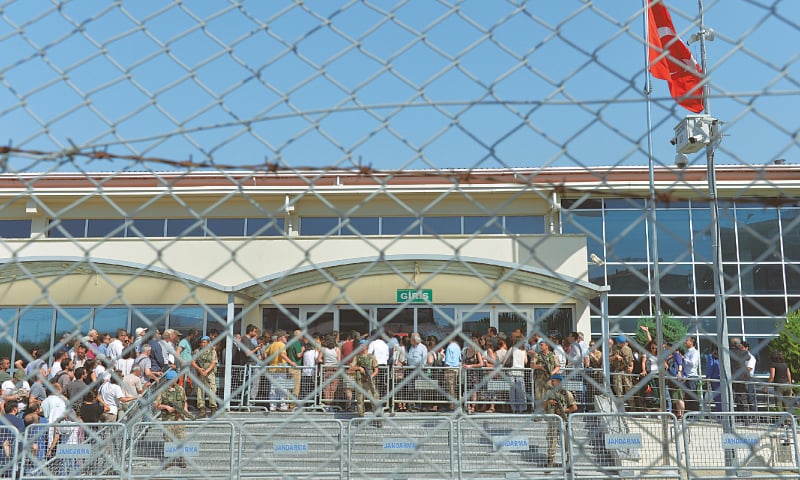SILIVRI: Sixteen leading Turkish civil society leaders appeared in court on Monday, accused of seeking to overthrow the government during the “Gezi Park” protests of 2013, in a trial dubbed an absurd sham by critics.
The group includes renowned businessman and philanthropist Osman Kavala, whose detention since November 2017 has made him a symbol of what his supporters say is a crackdown on civil society.
Kavala rejected the “irrational claims which lack evidence” in his opening statement, shortly after the trial began under high security in the prison and court complex of Silivri on the outskirts of Istanbul. He is accused of orchestrating and financing the protests which began over government plans to build over Gezi Park, one of the few green spaces left in Istanbul.
The rallies snowballed into a nationwide movement that marked the first serious challenge to President Erdogan’s brand of Islamic conservatism and grandiose development projects.
The 657-page indictment seeks to paint the protests as a foreign-directed conspiracy with links to the Arab Spring, which, ironically, the Turkish government supported.
“None of these actions were coincidental ... they were supported from the outside as an operation to bring the Turkish Republic to its knees,” the indictment says.
Amnesty International’s Andrew Gardner said the trial “speaks volumes about the deeply flawed judiciary that has allowed this political witch-hunt to take place.
It is absurdly attempting to portray routine civil society activities as crimes,” he said.
“The idea that Osman Kavala led the conspiracy is utterly outlandish and unsupported by any credible evidence,” Emma Sinclair-Webb, the Turkey director of Human Rights Watch (HRW), said.
Bees and borders
One of the allegations is the claim that a map on Kavala’s phone showing bee species actually depicted his plans to redraw Turkey’s borders.
There has been a renewed crackdown on dissidents since a coup attempt in 2016, blamed by the government on US-based Muslim preacher Fethullah Gulen, with thousands arrested and tens of thousands sacked from public sector, media and military jobs.
A respected figure in intellectual circles, Kavala is chairman of the Anatolian Culture Foundation, which seeks to bridge ethnic and regional divides through art, including with neighbouring Armenia, with which Turkey has no diplomatic ties.
Six of the suspects are being tried in absentia after fleeing Turkey, including actor Memet Ali Alabora and dissident journalist Can Dundar.
Published in Dawn, June 25th, 2019













































